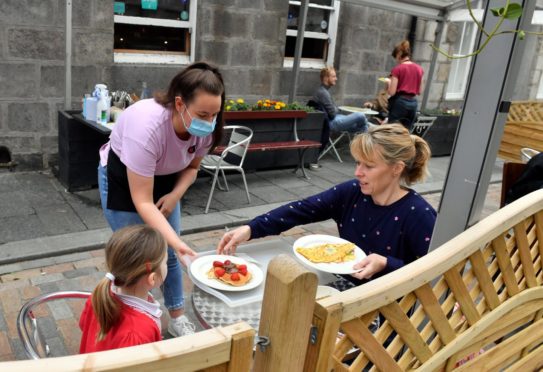The Covid-19 pandemic has brought widespread implications for our economy, seriously affecting how companies do business and, in some areas, threatening their very existence.
While the scale of impact on the north of Scotland’s economy is still unclear, what is clear is that we need to be doing all we can to support our business community as it addresses immediate concerns while planning for the future.
The pivotal role of the education sector in the recovery of the economy post-Covid-19 is unarguable. Universities and colleges need to continue to provide the excellence in teaching and/or research that they are known for and, in addition, reflect on how to most effectively use their expertise to support businesses to address their more immediate needs.
These approaches must reflect our regional priorities while considering sectoral demands and the requirements of individual companies
Given the regional nature of the institutions in the north of Scotland, the understanding of the needs of each region and their communities should be a given. Each institution, however, brings its own expertise, networks and approach and, thereby, together provides a wider range of solutions and support options for the business community.
By working in partnership with enterprise organisations, councils, trade bodies and development organisations such as Opportunity North East, we can start working towards a robust and resilient region that celebrates diversity and reduces inequalities.
In keeping with all businesses and organisations, the university needs to prioritise and has therefore identified areas where it can make most impact and be of greatest value.
A key approach will be to continue to help businesses prosper using different government-funded initiatives. These mechanisms are well established and provide funded access to university expertise and support.
An example of this in action is the graduate apprenticeships (GA) programme, which particularly suits the region as it is a work-based learning degree, thereby allowing people to study while they earn, regardless of their distance from a university.
By working in partnership with Skills Development Scotland, employers and professional bodies, the university is helping to upskill the workforce in key areas such as business management and data science and now has more than 500 apprentices studying from across Scotland. Colleges in the region provide access to the modern apprenticeship programme, an alternative offer for businesses.
Another government-funded programme companies have been particularly interested in during lockdown is the Scottish Funding Council’s Innovation Voucher scheme.
The scheme offsets the cost for businesses to work with universities or colleges to kickstart the development of products, processes or services. This is particularly relevant at this time as the vouchers enable firms to work with colleges and universities such as RGU to address their key challenges post Covid-19.
Another example where the university is working with the region’s companies is through the Innovate UK’s Knowledge Transfer Partnership (KTP) programme.
This provides access to university expertise to help businesses develop and adapt through the joint funding of a university-supported associate in the company. The companies we have seen using this programme come from a range of industries that will be crucial to the recovery of the region’s economy, including food and drink, energy, construction, transport and the creative industries. Prior to starting at the university, I used the KTP programme to address a critical resource gap in a company and personally know the difference it can make.
In addition to well established national programmes, institutions will bring their own approaches to addressing business need. One example is where the university recently launched its own initiative, RGU Knowledge Bites for Business, to provide companies with free online access to relevant and current insights from the wider university community, as well as information about these government-funded programmes.
So where from here? As we face the economic challenges of the future, universities and colleges will continue to have a vital role in helping businesses prosper. This will be best served when government, national and regional strategic bodies and educational institutions coalesce with appropriate investment, support, clear and consistent messaging and an effective delivery approach.
A win for the north of Scotland would be even greater access to these existing, proven government support mechanisms. As we face the economic challenges of the future, strong and purposeful partnerships will remain critical. We must build on the strong links that have been forged before and during lockdown to ensure collective recovery and success – for individuals, businesses and our economy.
Donella Beaton is associate vice-principal, business and economic development at Robert Gordon University.
